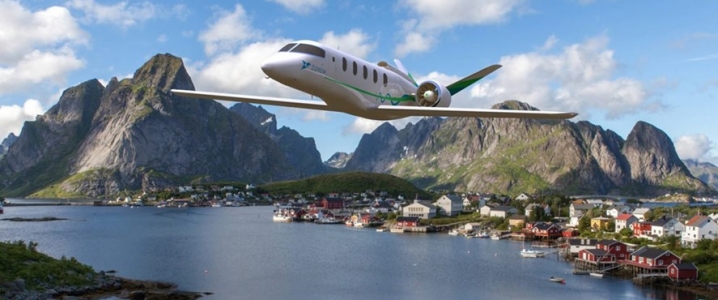The idea of quiet, low-carbon air travel is a logical extension of the electric vehicle race that has now also reached maritime travel in electric ferries. But there are some unique challenges with electric planes, which have delayed a repeat of what happened in electric cars in recent years and will be happening more in the years to come—some call it an energy revolution that will turn the oil industry on its head with millions of electric vehicles replacing gas guzzlers.
The main challenge with electric planes seems to have been striking the balance between weight, reliability, and cost. An all-electric plane would need a massive load of batteries—this is not only expensive, but also has implications for the aircraft’s flight performance. Of course, there are also issues such as safety and range to consider.
No wonder then that all the test flight news about e-planes seem to be about tiny one- to two-seater prototypes before their makers move on to actual passenger aircraft. Israel-based Eviation is something of an exception, working on an all-electric nine-seater that it plans to begin testing next year—but most companies focus on smaller aircraft to ensure the idea is workable.
But it’s not all about all-electric planes, despite the substantial drop in battery costs that have really helped this niche to take off. Hybrid planes still make sense, and some, including Boeing, are banking on them continuing to make sense before air travel becomes all-electric.
Boeing, along with JetBlue, is financially backing a hybrid 12-seater developed by another startup, Zunum Aero. The company says it has scheduled its first flight tests for 2019 and will begin selling the aircraft to airlines three years later. According to the company’s aero chief engineer and chief technology officer of power, the plane has the potential to revive regional travel by offering short-haul passengers an affordable, quicker means of travel. Related: Major Airlines Expect Oil Prices To Rise
Why hybrid? Because according to Zunum Aero, the energy storage problem has yet to be solved. In other words, electric plane makers have yet to come up with battery packs that are simultaneously energy dense enough to solve the weight problem, reliable enough for the high standards of air travel safety, and have a long enough range for the aircraft to make commercial sense. They also have to be cheaper than the alternatives, of course.
Hybrid is the natural solution before this happens. The batteries in the Zunum Aero will be mostly used for supplementary power especially during takeoff, when energy consumption is the highest. During the cruising part of the flight, the hybrid plane will be powered by a gas turbine. With a range of 1,125 km and an estimated price tag of US$3 million, the plane could have a very bright future ahead.
Batteries are the key to that future, and Zunum Aero is being smart about them. First, the battery packs can be quickly swapped at the airport if there is not enough time for recharging. More importantly, however, the company is not marrying its plane to lithium-ion batteries. The Zunum Aero is designed so it could switch to other “battery chemistries” should they prove a better alternative to the dominant lithium-ion technology.
Electric aircraft will no doubt take to the skies in our lifetime. There is simply too much pressure in this direction. The question is only how long it will take them to become mainstream. If the EV market is anything to go by, the answer is “quite long,” despite ambitious plans such as the ones recently shared by the chief executive of Norway’s state airport operator Avinor. “In my mind, there’s no doubt that by 2040 Norway will be operating totally electric” on short-haul flights. A lot of these will probably be done by hybrid aircraft.
By Irina Slav for Oilprice.com
More Top Reads From Oilprice.com:
- The Top Natural Gas Players In 2018
- The Biggest Challenge In Electric Car Markets
- The Overstated Threat Of High Oil Prices



















You can't be all electric and hybrid.
The failure to include the extraction of rare earth metals, mining, manufacturing, spare parts and repair, and the maintenance costs (all which are nearly 100% dependent upon fossil fuels) is simply unforgivable in this day and age.
The truth is - there is no such thing a "low carbon" transportation that uses machinery - anywhere on the planet (except bicycles, which are incredibly efficient).